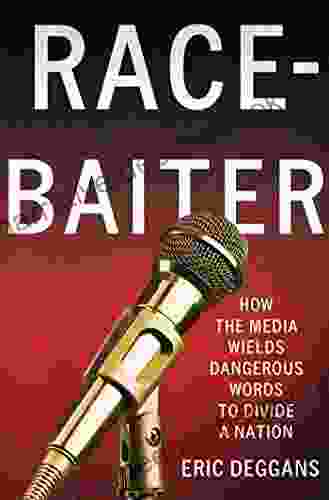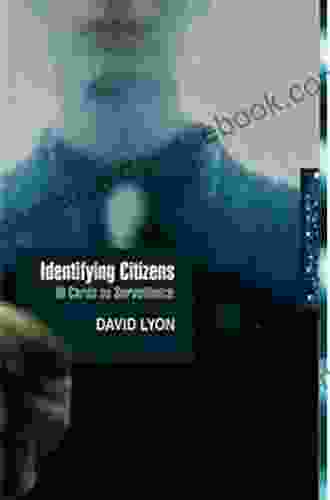ID Cards as Surveillance Themes for the 21st Century: A Comprehensive Analysis

In the rapidly evolving world of the 21st century, technology advancements have propelled us into an era where surveillance and privacy concerns are intertwined. Among the various methods of surveillance, identity cards (ID cards) have emerged as a significant tool for tracking and monitoring individuals. This article delves into the complex relationship between ID cards and surveillance, exploring their impact on privacy, freedom, and the overall fabric of society.
The Rise of Identity Cards
The use of ID cards has proliferated globally, driven by heightened security concerns post-9/11 and the rise of digital technologies. Governments and private organizations alike have adopted ID cards as a means of verifying identity, combating fraud, and enhancing security measures. However, the widespread implementation of ID cards has also raised questions about their potential implications for surveillance and privacy.
5 out of 5
| Language | : | English |
| File size | : | 886 KB |
| Text-to-Speech | : | Enabled |
| Screen Reader | : | Supported |
| Enhanced typesetting | : | Enabled |
| Word Wise | : | Enabled |
| Print length | : | 217 pages |
| Lending | : | Enabled |
Surveillance Functions of ID Cards
ID cards serve multiple surveillance functions that have the potential to track and monitor individuals' movements and activities. These functions include:
- Tracking: ID cards often contain biometric identifiers such as fingerprints, facial recognition data, or iris scans. These identifiers allow authorities to track individuals' movements, monitor their associations, and potentially establish a comprehensive surveillance network.
- Identification: ID cards enable authorities to identify individuals on-demand. This can be done through biometric verification, chip-based RFID technology, or simply by visual inspection. When combined with surveillance cameras and facial recognition systems, ID cards can greatly enhance the ability of law enforcement and other agencies to track and identify individuals.
- Profiling: ID cards can be used to collect and store personal information such as name, address, date of birth, and other sensitive data. This information can be used to create detailed profiles of individuals, facilitating the analysis of their behavior, preferences, and social networks.
Privacy Concerns and Societal Impacts
The surveillance capabilities of ID cards have sparked significant privacy concerns among civil liberties advocates and privacy experts. These concerns center around:
- Unwarranted Surveillance: The widespread use of ID cards could lead to pervasive surveillance, where individuals' every move is tracked and recorded. This raises concerns about governments or other entities abusing this power to monitor and control citizens.
- Data Loss and Misuse: ID cards often contain sensitive personal information that, if compromised, could lead to identity theft, fraud, or other forms of abuse. Data breaches involving ID cards can have far-reaching consequences, threatening individuals' privacy and financial well-being.
- Discrimination and Bias: The implementation of ID cards has the potential to create discriminatory practices. For example, ID card requirements could disproportionately affect certain racial or socioeconomic groups, creating barriers to access services or opportunities.
- Erosion of Freedom and Autonomy: Critics argue that the proliferation of ID cards could erode individual freedom and autonomy. By constantly tracking and monitoring their citizens, governments could create a society where privacy is diminished and individuals feel constantly under surveillance.
Benefits and Justifications for ID Cards
Despite the privacy concerns, ID cards also offer certain benefits and justifications:
- Enhanced Security: ID cards can contribute to increased security by making it more difficult for unauthorized individuals to gain access to sensitive areas or commit fraudulent activities.
- Fraud Prevention: ID cards can help prevent fraud by verifying identity and deterring individuals from using false documents.
- Convenience: ID cards can provide convenience by consolidating multiple forms of identification into a single card, eliminating the need to carry numerous documents.
- Access to Services: ID cards can facilitate access to essential services such as healthcare, education, and social welfare programs. By verifying identity and streamlining processes, ID cards can help individuals navigate complex bureaucracies.
Balancing Privacy and Security
Striking a balance between privacy and security is a fundamental challenge in the context of ID cards. While ID cards can enhance security and provide certain benefits, it is crucial to implement safeguards to minimize potential surveillance risks. These measures could include:
- Clear and Transparent Laws: Legal frameworks should clearly define the purposes and limitations of ID card usage. Transparent laws help prevent abuse and ensure that surveillance powers are not used arbitrarily.
- Independent Oversight: Independent bodies should oversee the implementation and use of ID cards. This oversight can ensure that surveillance functions are not abused and that individuals' privacy rights are protected.
- Privacy by Design: ID card systems should incorporate privacy-enhancing technologies and features. This could include anonymization techniques, data encryption, and the use of pseudonyms to minimize the potential for misuse.
- Public Education and Awareness: Governments and organizations should educate the public about the potential risks and benefits of ID cards. This awareness can help individuals make informed decisions about the use of ID cards and protect their privacy.
ID cards have become an integral part of the 21st century landscape, serving both surveillance and security functions. However, their widespread implementation raises complex privacy concerns that must be carefully considered. By implementing safeguards, striking a balance between privacy and security, and fostering public education and awareness, we can harness the potential benefits of ID cards while mitigating potential risks to our fundamental rights and freedoms.
Ultimately, the use of ID cards as surveillance themes for the 21st century should be guided by a commitment to transparency, accountability, and the protection of individual privacy. Only through careful consideration and public debate can we ensure that ID cards serve the interests of society without compromising our cherished values.
5 out of 5
| Language | : | English |
| File size | : | 886 KB |
| Text-to-Speech | : | Enabled |
| Screen Reader | : | Supported |
| Enhanced typesetting | : | Enabled |
| Word Wise | : | Enabled |
| Print length | : | 217 pages |
| Lending | : | Enabled |
Do you want to contribute by writing guest posts on this blog?
Please contact us and send us a resume of previous articles that you have written.
 Novel
Novel Chapter
Chapter Text
Text Story
Story Genre
Genre Reader
Reader Paperback
Paperback E-book
E-book Magazine
Magazine Shelf
Shelf Foreword
Foreword Synopsis
Synopsis Annotation
Annotation Footnote
Footnote Manuscript
Manuscript Scroll
Scroll Codex
Codex Classics
Classics Autobiography
Autobiography Reference
Reference Narrator
Narrator Librarian
Librarian Catalog
Catalog Stacks
Stacks Archives
Archives Research
Research Lending
Lending Reserve
Reserve Academic
Academic Reading Room
Reading Room Special Collections
Special Collections Interlibrary
Interlibrary Literacy
Literacy Study Group
Study Group Thesis
Thesis Dissertation
Dissertation Reading List
Reading List Book Club
Book Club Theory
Theory Textbooks
Textbooks Crystal Schwanke
Crystal Schwanke Elisabeth Pfeiffer
Elisabeth Pfeiffer Simon Ward
Simon Ward Chantelle Taylor
Chantelle Taylor Albert Camus
Albert Camus Richard G Beauchamp
Richard G Beauchamp Suresh Antonio
Suresh Antonio Nicholas Rzhevsky
Nicholas Rzhevsky Aleera Anaya Ceres
Aleera Anaya Ceres Lay Hwee Yeo
Lay Hwee Yeo Michael Heney
Michael Heney Michael L Frizell
Michael L Frizell Elizabeth Hoyt
Elizabeth Hoyt Spencer Hoshino
Spencer Hoshino Donna M Orange
Donna M Orange C W Task
C W Task John Welwood
John Welwood Gwenda Bond
Gwenda Bond Michael Hayden
Michael Hayden Giuseppina Pellegrino
Giuseppina Pellegrino
Light bulbAdvertise smarter! Our strategic ad space ensures maximum exposure. Reserve your spot today!

 Italo CalvinoDelve into the Enchanting World of Dark Secret Society Romance: Unveiling...
Italo CalvinoDelve into the Enchanting World of Dark Secret Society Romance: Unveiling...
 Avery SimmonsPatchwork Knitting: Explore the Art of Combining Squares, Shells, and Strips
Avery SimmonsPatchwork Knitting: Explore the Art of Combining Squares, Shells, and Strips Tom ClancyFollow ·12.6k
Tom ClancyFollow ·12.6k Michael SimmonsFollow ·5.7k
Michael SimmonsFollow ·5.7k Clarence MitchellFollow ·12.5k
Clarence MitchellFollow ·12.5k Pablo NerudaFollow ·7.3k
Pablo NerudaFollow ·7.3k Preston SimmonsFollow ·3k
Preston SimmonsFollow ·3k Charlie ScottFollow ·18k
Charlie ScottFollow ·18k Benji PowellFollow ·6.5k
Benji PowellFollow ·6.5k Neil GaimanFollow ·15.9k
Neil GaimanFollow ·15.9k

 Dallas Turner
Dallas TurnerParasols and Peril: Adventures in Grace
In the quaint town...

 Caleb Carter
Caleb CarterFlight Attendant Joe: A Dedicated Professional in the...
Flight Attendant Joe...

 Jerry Ward
Jerry WardPick Lottery The List For 23 States August 15 2024
The Pick Lottery is a multi-state lottery...

 Hudson Hayes
Hudson HayesHow the Media Wields Dangerous Words to Divide a Nation
In a world where the media is...

 Curtis Stewart
Curtis StewartThe Magic Mala: A Story That Changes Lives
In the realm of ancient traditions and...

 Raymond Parker
Raymond ParkerEarthly Meditations: A Poetic Tapestry of Nature,...
In the realm of contemporary...
5 out of 5
| Language | : | English |
| File size | : | 886 KB |
| Text-to-Speech | : | Enabled |
| Screen Reader | : | Supported |
| Enhanced typesetting | : | Enabled |
| Word Wise | : | Enabled |
| Print length | : | 217 pages |
| Lending | : | Enabled |








